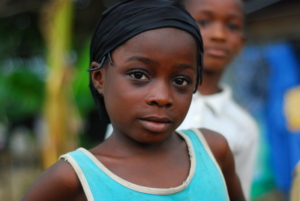PHAAE: Mission for Clean Water and Sanitation in Rural Nigeria
 In Nigeria, more than 80% of schools do not have basic sanitation or running water, leaving children and their communities vulnerable to waterborne diseases and poor hygiene. These challenges not only affect health but also school attendance, particularly for girls who miss school due to the lack of proper facilities during menstruation. The absence of these essential resources exacerbates inequality, leaving rural children significantly disadvantaged compared to their urban counterparts.
In Nigeria, more than 80% of schools do not have basic sanitation or running water, leaving children and their communities vulnerable to waterborne diseases and poor hygiene. These challenges not only affect health but also school attendance, particularly for girls who miss school due to the lack of proper facilities during menstruation. The absence of these essential resources exacerbates inequality, leaving rural children significantly disadvantaged compared to their urban counterparts.
Public Health Aid Awareness & Education (PHAAE), a nongovernmental organization (NGO), focuses on addressing the critical lack of access to clean water and sanitation facilities in rural communities across Nigeria. PHAAE’s work is vital in bridging this gap by providing water systems and sanitation facilities, starting with schools and extending to entire communities. By improving hygiene infrastructure, PHAAE enhances educational environments, reduces disease risks and promotes long-term community health.
Public Health Aid Awareness & Education
PHAAE adopts a community-centered and sustainable approach to addressing rural Nigerian communities’ water and sanitation crisis. Starting with a thorough needs assessment in collaboration with local leaders and school administrators, PHAAE tailors interventions to meet each community’s unique requirements. Schools serve as central hubs for education and social progress, so by installing clean water systems and sanitation facilities there, PHAAE enhances learning environments and extends these essential resources to the broader community. Each water facility positively impacts thousands of residents beyond the school, creating lasting community-wide benefits.
Transforming Lives
Through partnerships with sponsors like the U.S. Embassy and global philanthropists, PHAAE has transformed thousands of lives, affirming that clean water and sanitation are essential rights for every child and community. PHAAE’s initiatives have significantly enhanced the health, education and overall well-being of the communities it serves. By equipping rural schools with clean water and sanitation facilities, the organization has greatly improved the quality of life for students and extended these benefits to surrounding communities.
In Kunyami, Abuja, a PHAAE water project initially designed for 1,500 students now benefits more than 5,000 community members, significantly reducing waterborne diseases and promoting better hygiene practices. Before PHAAE’s intervention, children like Sater had to trek long distances to the Toge River for water, sometimes going days without bathing. Today, with clean water accessible directly at school, they can prioritize their education and personal well-being, marking a transformative change in their daily lives.
PHAAE’s projects have broad societal impacts, including increased school attendance, especially for girls who can now attend during menstruation thanks to proper sanitation facilities. In Takushara, during the COVID-19 pandemic, PHAAE provided water and sanitation for 1,300 students and delivered hygiene education, equipping the entire community to navigate the health crisis more effectively. Altogether, these initiatives have positively impacted more than 9,000 people.
Closing Remark
PHAAE’s work is far from over. It is driven by a vision of a world where no child is denied access to clean water and proper sanitation simply because of their birthplace. PHAAE continues to work in rural communities across Nigeria, expanding its reach and deepening its impact.
– Staff Reports
Photo: Flickr
